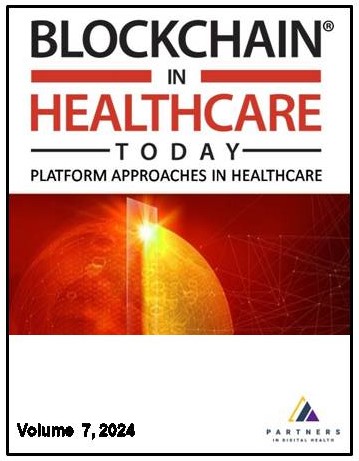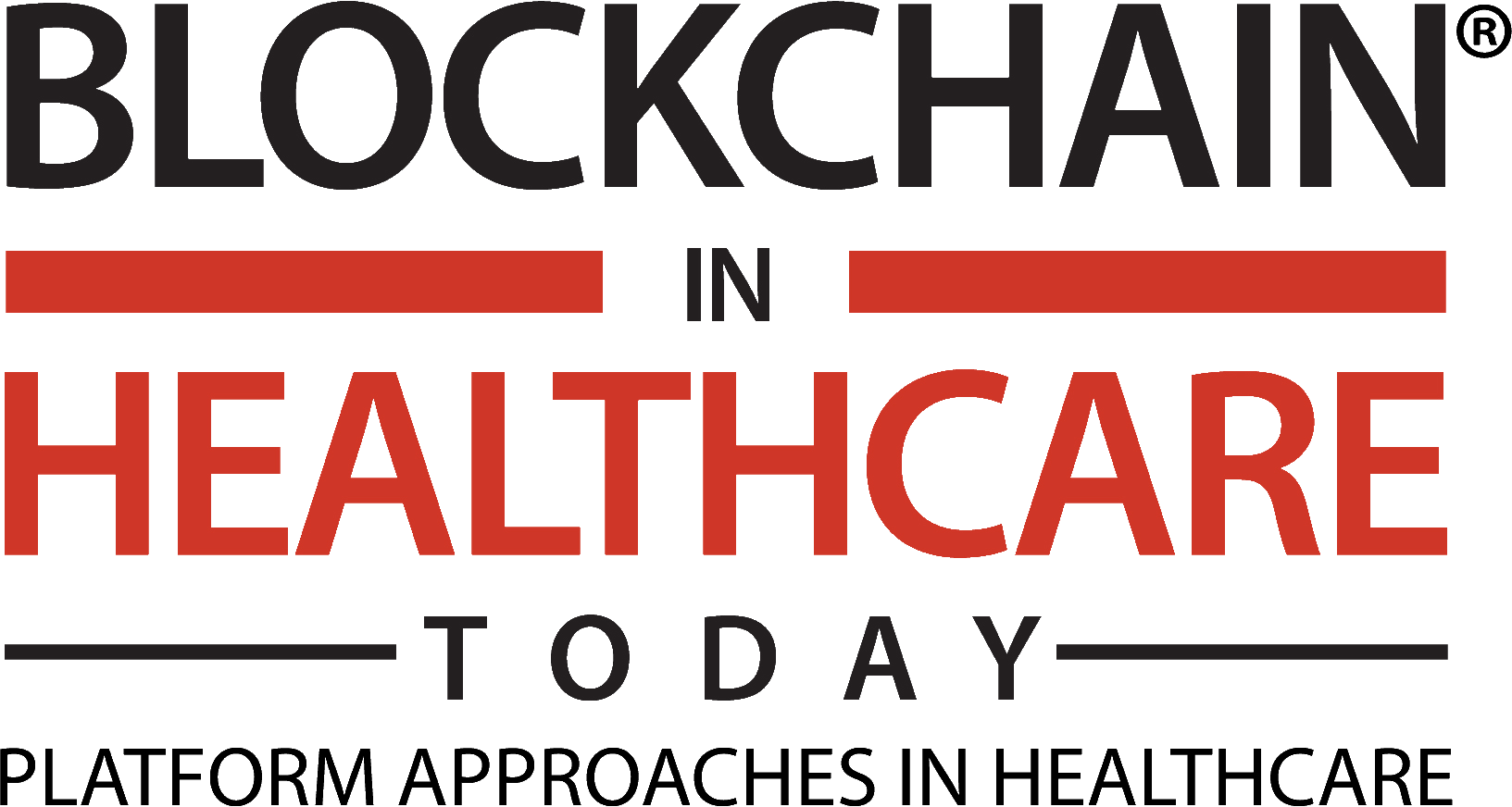Current issue

Volume 7, Issue 3, 2024
Online ISSN: 2573-8240
Volume 7 , Issue 3, (2024)
Published: 16.12.2024.
Open Access
Blockchain in Healthcare Today (BHTY) is the leading international open access journal that amplifies and disseminates platform approaches in healthcare and distributed ledger technology research and innovations. Fields of interest include healthcare information systems, leveraging data science tools and techniques, interoperability, consent mechanisms, privacy preservation, security of health data, clinical trials management, supply chain management, revenue cycle automation, immersive technologies, tokenomics, governance, regulation, network technologies, clinical computing, cryptography, and failed experiments in this expanding specialty field of research.
All issues
Contents
21.03.2022.
Original Research
Clinical, Organizational and Regulatory, and Ethical and Social
Objective: While existing research by our team has demonstrated the feasibility of building a decentralized identity management application (‘MediLinker’) for health information, there are implementation issues related to testing such blockchain-based health applications in real-world clinical settings. In this study, we identified clinical, organizational and regulatory, and ethical and social (CORES) issues, including recommendations, associated with deploying MediLinker, and blockchain in general, for clinical testing.
Method: CORES issues and recommendations were identified through a focus group with 11 academic, industry, and government experts on March 26, 2021. They were grouped according to their expertise: clinical care (n = 4), organizational and regulatory concerns (n = 4), and ethical and social issues (n = 3). The focus group was conducted via Zoom in which experts were briefed about the study aims, formed into breakout groups to identify key issues based on their group’s expertise, and reconvened to share identified issues with other groups and to discuss potential recommendations to address such issues. The focus group was video recorded and transcribed. The resulting transcriptions and meeting notes were imported to MAXQDA 2018 for thematic analysis.
Results: Clinical experts identified issues that concern the clinical system, clinical administrators, clinicians, and patients. Organizational and regulatory experts emphasized issues on accountability, compliance, and legal safeguards. Ethics and social-context experts raised issues on trust, transparency, digital divide, and health-related digital autonomy. Accordingly, experts proposed six recommendations that could address most of the identified issues: (1) Design interfaces based on patient preferences; (2) ensure testing with diverse populations; (3) ensure compliance with existing policies; (4) present potential positive outcomes to top management; (5) maintain clinical workflow; and (6) increase the public’s awareness of blockchain.
Conclusion: This study identified a myriad of CORES issues associated with deploying MediLinker in clinical settings. Moreover, the study also uncovered several recommendations that could address such issues. The findings raise awareness on CORES issues that should be considered when designing, developing, and deploying blockchain for healthcare. Further, the findings provide additional insights into the development of MediLinker from a prototype to a minimum viable product for clinical testing. Future studies can use CORES as a socio-technical model to identify issues and recommendations associated with deploying health information technologies in clinical settings.
Robert Bautista John
01.07.2022.
Conference Presentations
CORES Issues on Blockchain Deployment in Healthcare: Evidence from Experts
The annual ConV2X is a leading international health tech symposium driving real world evidence, strategy, research, operations and trends to create a blueprint for a new digital health era. The 2021 symposium featured a scientific program of academic/research presentations in addition to business and industry talks. The research track focused on exploring and sharing developments in blockchain and emerging technologies in health and clinical medicine. Submissions were based on original research, conceptual frameworks, proposed applications, position papers, case studies, and real-world implementation. Selection was based on a peer-review process. Faculty, students, and industry researchers were encouraged to submit abstracts to present ideas before an informed and knowledgeable audience of industry leaders, policy makers, funders, and researchers.
This presentation was selected by the scientific review committee.
Submission Review Committee
- Dave Kochalko, CEO of ARTiFACTS
- Anjum Khurshid, UT Austin
- Carlos Caldas, UT Engineering
- Gil Alterovitz, Harvard Medical School
- Kayo Fujimoto, UT Health Houston
- Lei Zhang, University of Glasglow
- Sean Manion, CSciO of ConsenSys Health
- Vijayakuman Varadarajan, University of South Wales
- Vikram Dhillon, Wayne State University
- Yuichi Ikeda, Kyoto University
John Robert Bautista, Daniel Toshio Harrell, Eric T. Meyer, Eliel Oliveira, Anjum Khurshid
